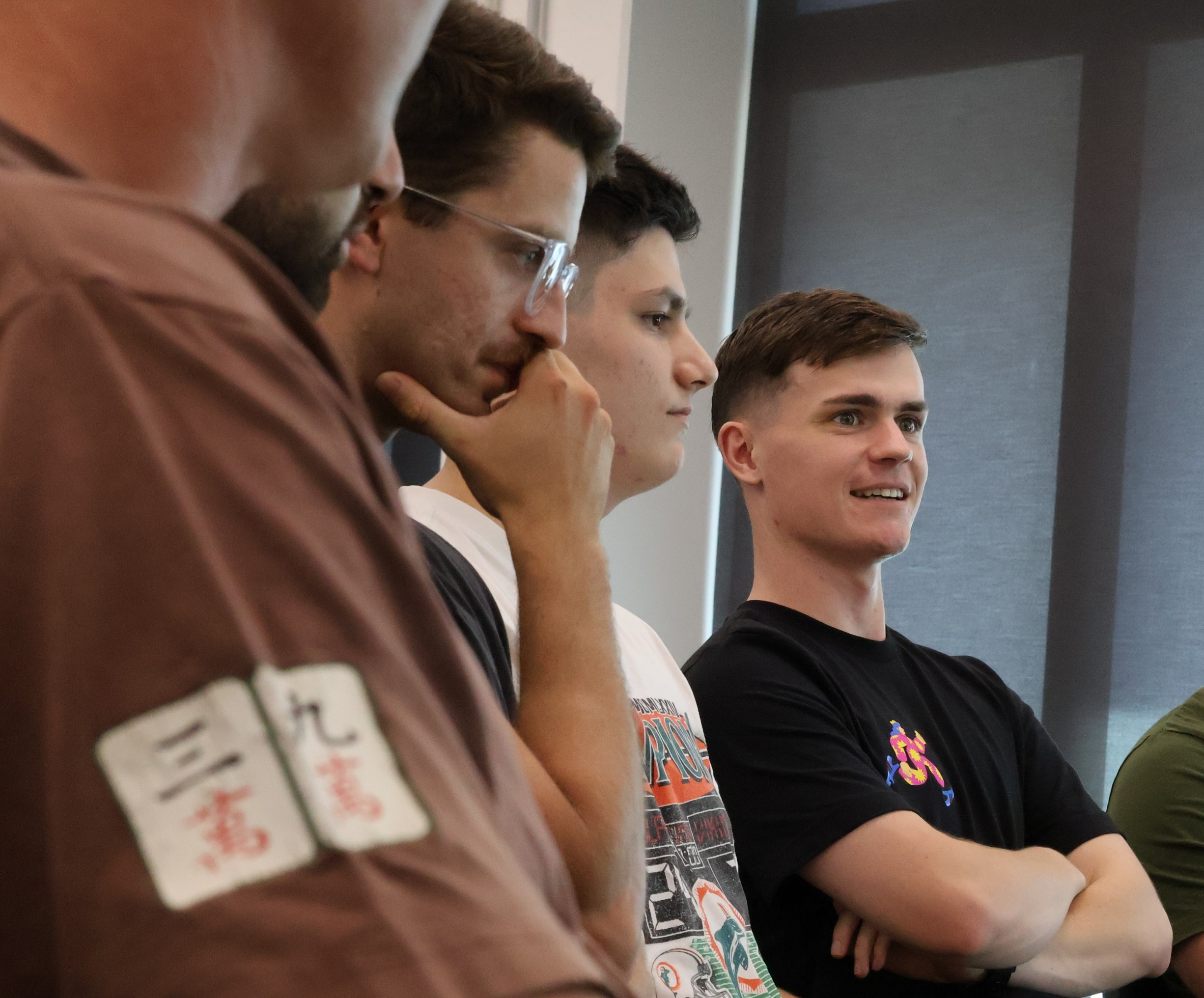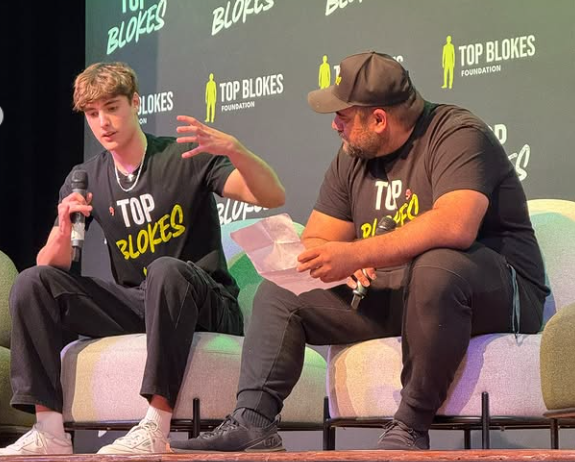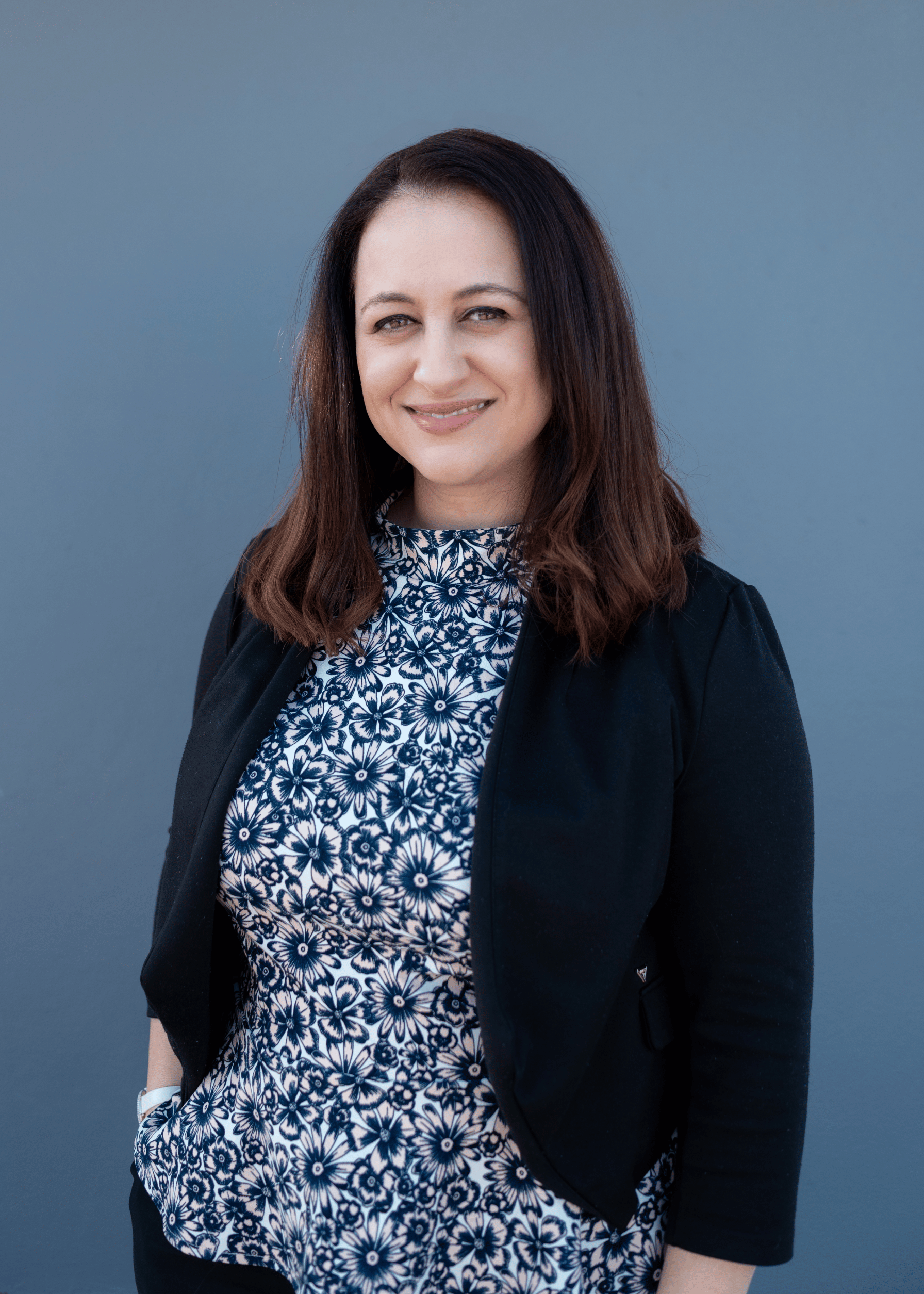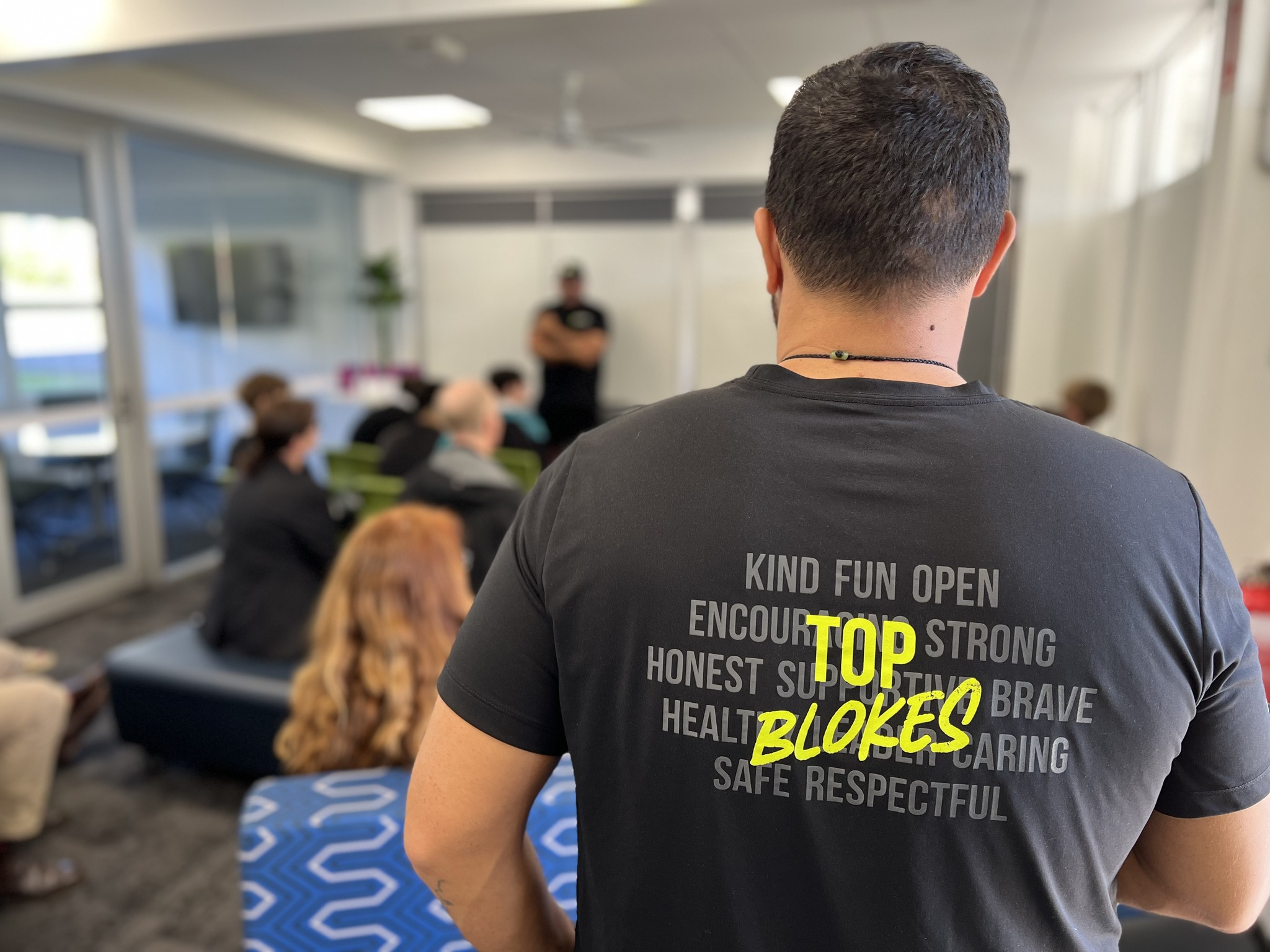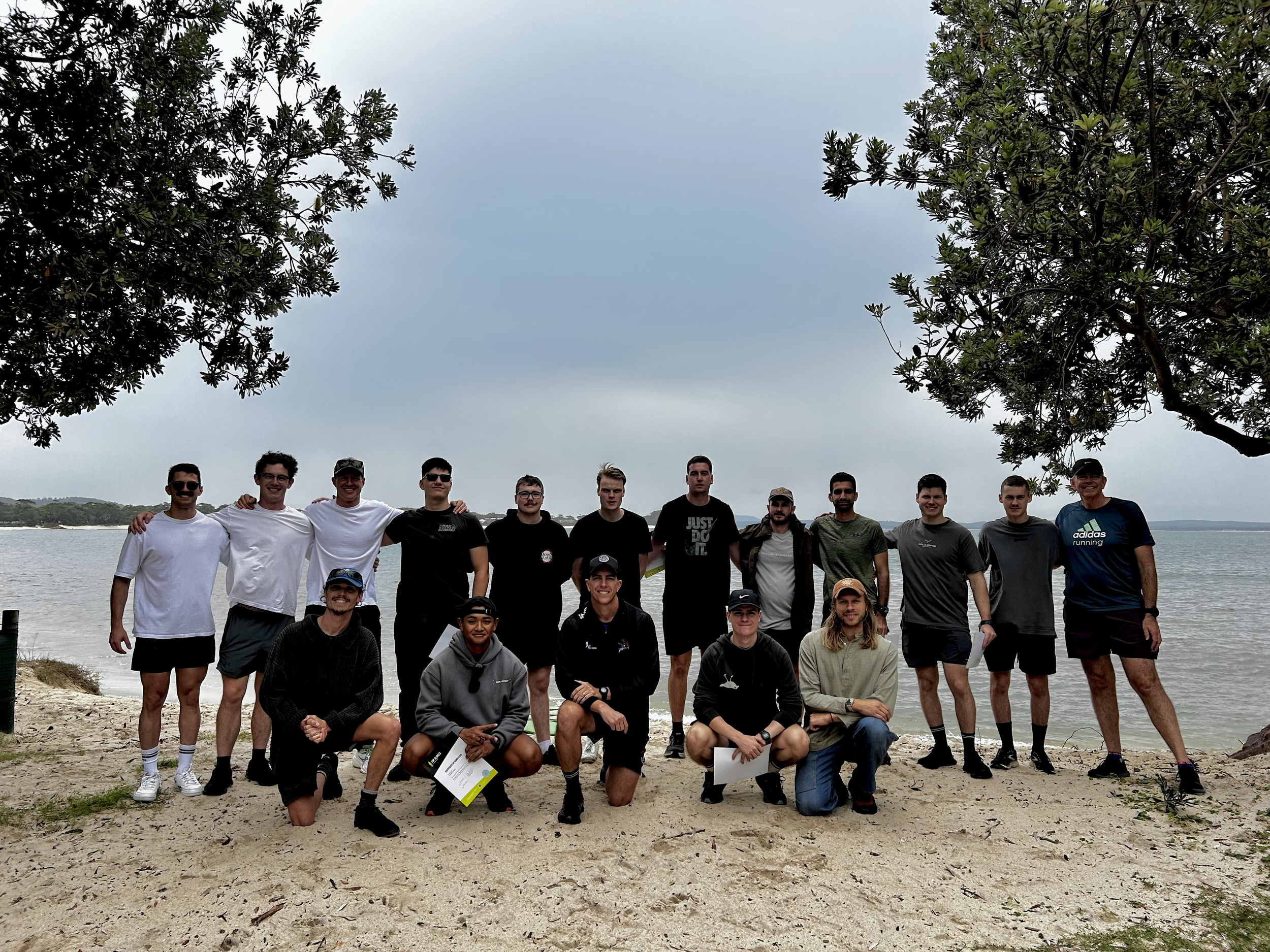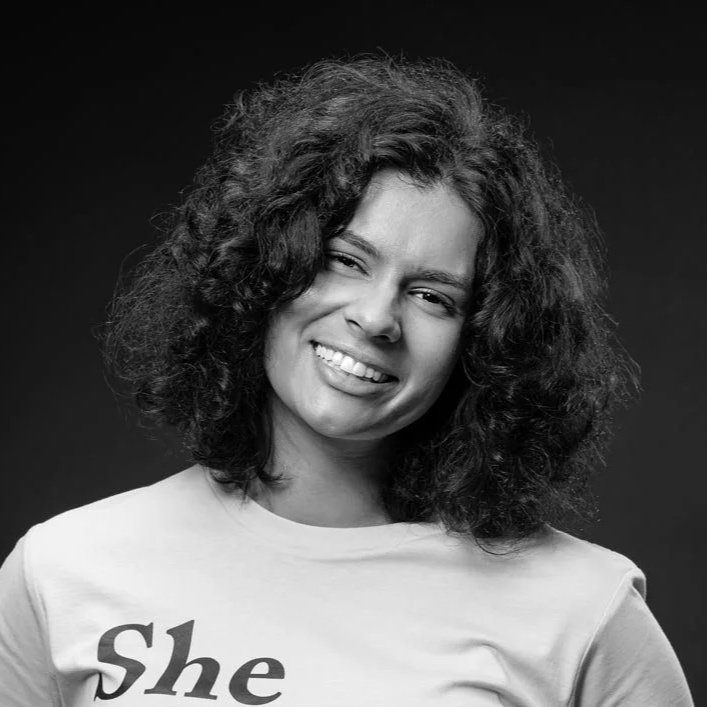Melissa Abu-Gazaleh On Redefining Masculinity And Mental Health Support Helping Young Men To Thrive
Melissa Abu-Gazaleh is the Managing Director of the Top Blokes Foundation, an Australian organisation that works to improve the mental health, wellbeing and decision-making of boys and young men.
She established the organisation at the age of 19, in response to the lack of targeted support for young males who were often overrepresented in statistics around suicide, crime and violence.
Under her leadership, Top Blokes has engaged more than 25,000 young males and continues to be at the forefront on the issues and trends that impact young men’s mental health, relationships and engagement in the community.
Top Blokes Foundation has been named Australia’s Charity of the Year and Melissa has been recognised nationally for her contributions, including being awarded EY Social Entrepreneur of the Year, Australian Financial Review’s 100 Women of Influence and NSW Young Australian of the Year.
Melissa continues to advocate for a more nuanced approach to young men’s health that values prevention, inclusion and lived experience. Through her role, Melissa works alongside educators, community leaders and policymakers to ensure boys and young men have opportunities to grow into healthy, safe and connected adults.
Melissa discusses addressing Australia’s youth mental health crisis by creating safe spaces for young men to build resilience, how mentoring in schools and workplaces reduces social risk factors, and why scaling patiently is critical for long-term systemic change.
Highlights from the interview (listen to the podcast for full details)
[Indio Myles] - To start off, can you please share a bit about your background and what led you to social entrepreneurship?
[Melissa Abu-Gazaleh] - For me, it started when I was 19. I began to become acutely aware of the conditions we lived in as young people, and I recognised that the young men around me were often struggling with their wellbeing. They were masking their pain through drugs, alcohol and self-harm, and I often wondered why they didn’t necessarily have hopes and dreams for their future like I did for myself.
Then I started to realise something after I looked at the media landscape. I remember coming across a statistic which said 80% of news articles we see about young men are negative. Back then, the big issue often in the papers was around young men graffitiing on trains. It was the thing everyone spoke about, and I remember one particular newspaper put the faces of nine young men on the front page. The headline was essentially, “Enough is enough,” and they attempted to name and shame these young men.
As a young person, I looked at this and thought that if you’re trying to inspire change and improve people’s conditions, naming and shaming absolutely does not work. I became curious about what it would take to create a culture where young men care about themselves and care for each other. Top Blokes started off as a one-day community project. I was a university student at the time, and from there, we just continued to build year after year.
A couple of years into this work, some people started saying, “This is gaining traction, so why don’t you consider registering it as an organisation?” Having no idea what that meant, I found some people who understood how to put together a constitution and build a board of directors. One person said, “I’ll be the Chairperson,” another said, “I have an accounting background, I’ll be the Treasurer.” I thought, great, what will I be? They said, “You’ll be the CEO.”
That’s how I stumbled into this role and awesome world of impact. From there, I had to learn every piece of it from the ground up. I really love it. I look back on those memories with such fondness because I was stretched and challenged in so many different ways, just as I still am now. I absolutely love this journey.
As the Managing Director of Top Blokes Foundation, can you share how it’s improving young men’s mental health and wellbeing?
We exist to help young men live healthy and safe lives by deliver mentoring programs so we can challenge and nurture young men to be their best selves.
What we know is that young men often cry out for a safe, non-judgemental space to explore the issues they’re facing in life. They also crave time from people who can sit with them, walk alongside them, and simply give them the opportunity to process what they’re going through. They’re also in need of positive role models.
Our mentoring programs are delivered to young males as young as 10 years old, all the way up to 24 years old, both in schools and in workplaces. Each week, the boys explore different social issues they’re facing covering topics like mental health and resilience, anger management, drugs, alcohol, and relationships. Ultimately, we’re helping young men build critical skills around informed decision-making, forming positive peer connections, and making good choices when they find themselves in tricky social situations.
Fortunately, we’ve had research conducted on the Top Blokes program. When you compare young men who have a Top Blokes mentor to those who don’t, those with a mentor achieve four times the social outcomes. There’s a cost-benefit ratio of nine to one, meaning that for every dollar invested in a Top Blokes mentor, we’re able to return $9 in value.
This can result in significant cost savings. For example, schools that engage the Top Blokes program see, on average, around $53,000 in savings. That’s because boys are more engaged in school, they’re being suspended less often, and they’re able to build better relationships with both their peers and their teachers.
What’s most incredible is the feedback we receive directly from the young men. We’ve had hundreds of them share how the program has impacted their lives. For some, it’s so transformational that they’ve told us it saved their lives. For others, it’s about planting the right seeds so they’re equipped to make better decisions, like when they face a high-pressure situation or manage to keep their emotions in check rather than reacting with violence, for example, in a fight with a peer.
Then there’s our workplace program. When we think about it, we spend a significant portion of our lives at work. Work can either impact our mental health, or personal challenges we’re facing can influence our experience in the workplace.
When we look at the statistics (and I’ll just take one example) regarding young men in apprenticeships, Australian research shows that 40% of young males will drop out of their apprenticeship within the first 12 months. Often the reason is not directly related to work, but more to mental health challenges or personal circumstances like a lack of social support.
Then, when we look at men in the workplace, they are twice as likely to experience mental health problems caused by their job compared to factors outside of work. Yet they’re half as likely to reach out for emotional support in the workplace compared to women.
We recently did research with both employers who had a high ratio of young male employees and with the young men themselves. It’s fascinating how differently they see things. From the employer’s perspective, they often observe young men disengaging from their work. They see interpersonal conflict with colleagues, or a lack of productivity, but that’s all surface level.
Young men told us that, without a doubt, mental health and stress are the most common challenges they face. But they don’t feel they can reach out to their managers for support. They feel a sense of pressure to hold it all together because they’re worried it could impact their chances of getting a promotion. That fear then compounds their stress.
To be honest, if you look at some corporate cultures, it’s not an irrational fear, there’s probably a track record of that happening in some companies. What young men told us is that they are seeking mentoring, social connection, and the confidence to ask for help when they need it.
Over time, one of the things we’ve heard from a young man really stood out. He said that younger guys are more open to having conversations about their struggles because they’ve seen what happens to the older generation when those struggles go unaddressed. That’s incredibly powerful, and what we’re now seeing is a generation of young men who (despite the stereotypes) are feeling more comfortable opening up when they need support. But there’s a disconnect between the support that’s available in the workplace and the type of support young men actually need.
Our role is to go into workplaces and deliver an eight-week mentoring program so young men have the space to connect with their peers, build skills and resilience. We’ve been really lucky that workplaces have come back to us and shared how, as a result of the Top Blokes program, they’ve seen significant improvements in team cohesion, productivity, performance, and results.
We’re here to help workplaces meet their obligations when it comes to building a psychologically safe environment.
Why do you think it’s essential to focus specifically on young men when addressing behaviours around mental health, risk-taking, and resilience?
I don’t think you have to look far to see that people often talk about young men, but they’re not talking with young men. How do you address these issues if you’re not engaging young men and bringing them into the conversation?
We know that young men are overrepresented in statistics around suicide, violence, and youth crime rates, but they are far less likely to seek help. So we have to ask ourselves why is that?
When you start to look at traditional cultural norms, it becomes clear. Historically, young men have been socially penalised for opening up and seeking help. They might face humiliation from their peers, or judgement from their parents or older relatives. There’s language thrown around like, “man up” or “don’t be weak.”
But it’s not just on an individual level, that’s reinforced across society. You see it in media, entertainment, and sport. Young men often end up masking their distress instead of expressing it. Then, when you observe them engaging in extreme risk-taking behaviours, binge drinking, alcohol-fuelled violence, or withdrawing from friends, you can see how all of this has been ingrained over decades, even centuries.
It takes a significant amount of work to undo all of that. When young men are transitioning into the workplace, those pressures often intensify. There are expectations to perform, to earn, and to keep up with older men, and that just adds to their stress. Again, they’re less likely to seek help.
But when I reflect on where we are today, I think we’re fortunate as a country. We’ve come a long way, and we’re having really good, open conversations about the state of masculinity. We’re looking at it both at an individual level and the systems level through the education system, parental values, employer conditions, and the policy landscape to help improve conditions so young men are encouraged, not shamed, to seek help.
Ultimately, it’s a multi-pronged approach. What really encourages me is seeing how receptive young men are to this. They do want to see the community rally around them and help them. They are now open to these conversations, but they just need to be included in them.
When you’re looking at scaling the work of an organisation like Top Blokes Foundation, how do you approach growth while maintaining depth and impact?
It’s an ongoing balance, and we have to be mindful of it because we receive significant demand for our services, not only across Australia, but internationally as well.
At Top Blokes, we live by what we call the “scale deep” framework. It’s made up of four types of scaling that we aim to implement across all levels of our work.
The first is to scale out and reach more young men in communities that are needing support. But we also aim to scale deep, by embedding ourselves within those communities so that we’re not just supporting individuals or small groups, but helping shift the needle on big issues like violence and how young men engage positively within their communities.
We also aim to scale up to support and work alongside governments and systems to help change the broader conditions that young men live in. Lastly, we scale within: to strengthen our own internal capacity to ensure that the other three scales can thrive.
It can be tempting to grow quickly and grow wildly, but we’ve learned over the years to be disciplined. We follow a principle we call “controlled growth.” That means, along the way, we must always build our financial resilience, maintain a strong internal culture, and ensure that every activity we undertake aligns with our strategic goals. We’re also very careful to avoid any level of mission drift.
It’s always going to be a challenge. As a growing organisation, you have opportunities coming at you from every direction. But for us, the scale deep framework and the controlled growth principle are what keep us grounded.
As an AMP Foundation Tomorrow Maker, you're getting support to develop and grow the Top Blokes Foundation. What have been your reflections and learnings from the support to date and how might some of that be applicable to other founders who are growing or starting a social enterprise?
I’ve loved my experience with the Tomorrow Makers program so far. For me, I’ve always believed that an organisation stops growing when the CEO stops growing. What I’ve appreciated most is seeing that the AMP Foundation has a real appetite for risk. They’re really encouraging us to take good, calculated risks, and they’re happy to fail forward with us. They’ve opened up a network full of rich knowledge and experience to draw from.
One of the biggest things I’ve noticed in ourselves, as a result of going through the program, is this: what’s the biggest killer of creative ideas and innovation? It’s saying, “We don’t have the money for it,” or, “That’s too expensive.” That’s a mindset we can sometimes adopt in the charity sector.
I’ve seen a real shift in the way we think. As part of the program, we’ve received an incredible amount of capacity-building funding. For the first time, money isn’t the issue. What that’s done is shift our entire mindset. We’re making much smarter decisions, and it feels like we’re operating in a different state of play. The strategic thinking we’ve been able to do so far is going to help scale our workplace program into a range of companies and industries. I think that’s the power of the AMP Foundation’s Tomorrow Makers program.
I feel so privileged to be on this journey alongside the other members in the program. To learn from them and grow together has been incredible.
As a social entrepreneur, CEO and founder, what advice would you offer to others aspiring to create impact in a similar way?
Probably the biggest piece of advice is don’t aim for perfection as your first step. It’s going to be really hard to achieve that.
Just get started. Test and learn. Be adaptive and ready to pivot. At Top Blokes, we’ve probably had three major pivots in our history, and I feel like we have small pivots every second day. You’ve got to get comfortable with the idea that how something starts off is not necessarily how it’s going to end.
I would also say surround yourself with critical friends. You’re going to have family and friends who are always supportive, and that’s great, but their feedback might be biased. You absolutely want them in your corner for encouragement, but you also need people who will be super honest with you. People who’ll give you a perspective that’s actually helpful to your growth and your journey.
My last piece of advice would be make sure you’re investing in your own leadership development. How you show up as a leader matters. What your leadership shadow looks like matters. And how you invest in the relationships around you is going to make a difference in the kind of results you achieve.
What inspiring projects or initiatives have you come across recently that are creating positive change?
Probably the one that has been with us on the Top Blokes journey for years is a social enterprise called Flagstaff. They’re based in the Illawarra, and for years they’ve taken care of our printing needs.
They’re a social enterprise that employs people with disabilities, and I think they’ve been operating even before the term “social enterprise” became common language. I’ve always been inspired by their ability to engage and create inclusive employment opportunities. We continue to love working alongside them, and it’s definitely a two-way relationship. They help us, and we help them.
To finish off, what books or resources would you recommend to our audience?
I have two books that I just go back to time and time again. I feel like every year or every second year, they help me regain clarity and re-centre myself.
The first book is called Founder’s Mentality. Often, people talk about “founder syndrome,” suggesting that founders have unchecked egos. But this book is the opposite.
It highlights what makes a founder a founder and what their unique advantages are. It encourages founders to lean into that even more. I often find that when I need clarity or I’m unsure of my next step, Founder’s Mentality is the book I turn to.
The other book I’d recommend is called Scaling Up. I’m not sure if you’ve heard of it (it’s by Verne Harnish), but it’s about ensuring that when you’re scaling, you’re focusing on all the right elements and doing it in a grounded, realistic way.
Those are the two books I highly recommend. I’ve probably had them for at least 10 years or longer, and I keep going back to them year after year.
Initiatives, Resources and people mentioned on the podcast
Recommended books
The Founder's Mentality: How to Overcome the Predictable Crises of Growth by Chris Zook and James Allen
Scaling Up: How a Few Companies Make It…and Why the Rest Don’t by Verne Harnish


